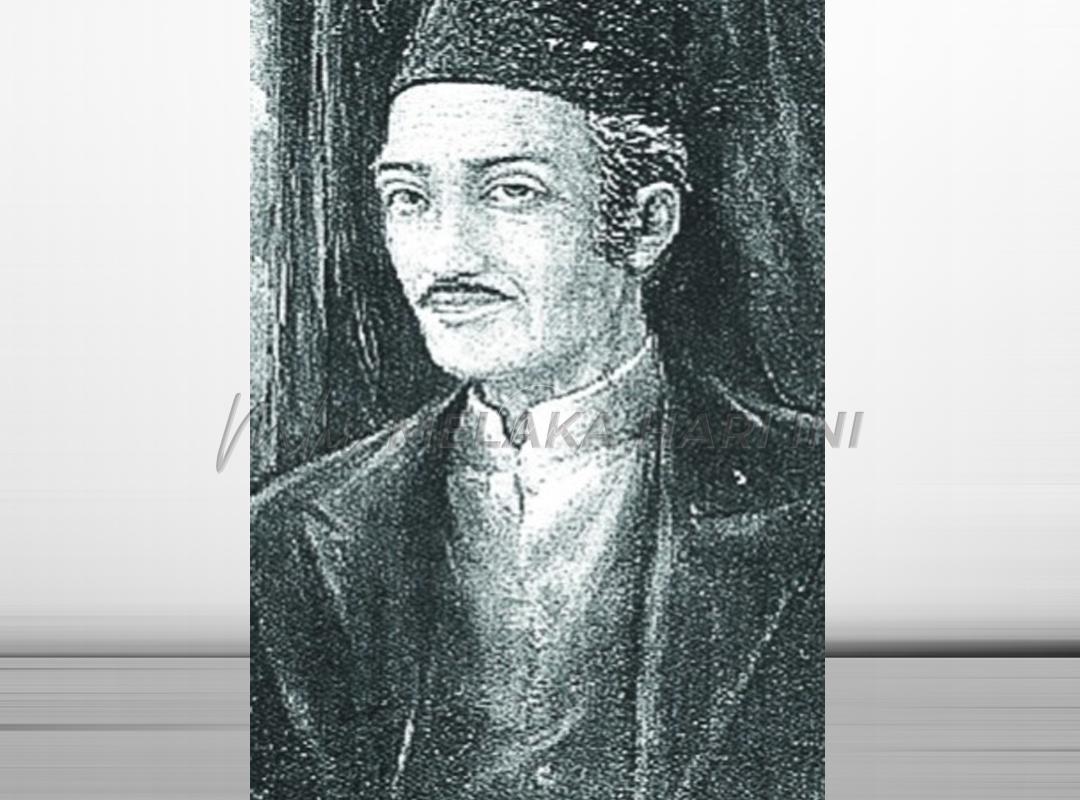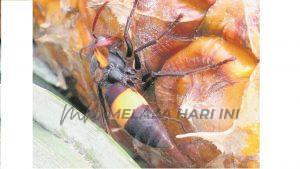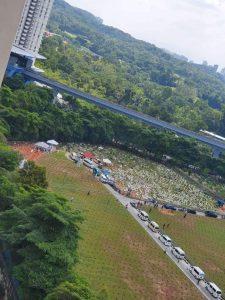
Abdullah Munshi: Introducing the Malay World as Journalist, Sociologist and also Scientist
ABDULLAH Munshi is ignored by Malaysian journalism schools. It seems there is no proximity between the culture of journalism teaching to his writing orientations and journalistic narratives. His Syair Singapura Terbakar (1843) is a classic rendition of news written in verse. Abdullah cannot simply be regarded as the “Father of Modern Malay Literature.” Abdullah was adapt at cross-genre writing, blurring the formalistic categories of fiction and non-fiction, literature and other genres, including the ethnographic and the anthropological.
He married the narrative, otherwise expressed in routine reportage, in beautifully crafted verse. Amin Sweeney in his 2006 essay “Abdullah bin Abdul Kadir Munsyi: A Man of Bananas and Thorns,” considered the Syair as showcasing Abdullah’s journalistic talent. Sweeney compared Abdullah’s coverage as superior to that of the “narrow, biased coverage” of the Singapore Chronicle. In the Syair, Abdullah had showed an acquaintance with his milieu, an empathy with society and culture. His Syair carries veiled criticisms on what he saw, a normative overture emerging from his self-consciousness and autonomy as subject.
Abdullah bin Abdul Kadir, popularly known as Abdullah Munshi (1796-1854) is still being polemicized in our campuses; and by Malay society at large. Abdullah, born in Kampong Pali (“Pali” is a Tamil word for mosque)) Melaka, was perhaps the earliest member of the Malay world to be critical of both the Malays and the West.
“The Father of Modern Malay Literature” is an epithet often ascribed to Abdullah Munshi. He can also be described as “The Father of Modern Malay Journalism.” Two of his works, The Hikayat Abdullah (Tale of Abdullah) published in 1849, and Kisah Pelayaran Abdullah ke Kelantan (Account of Abdullah’s Voyage to Kelantan) in 1838 are stories most often singled out as those that form the bridge between traditional and modern Malay writing. To be fair, Abdullah’s contemporaries were Ahmad Rijaluddin Hakim Long Kandu who wrote Hikayat Perintah Negeri Benggala (1811), Fakih Saghir (1829), Surat Keterangan Sheikh Jalaluddin and Laudin (1830), Hikayat Nakhoda Muda. Also of note was Siami, who was Stamford Raffles clerk in Pulau Pinang in 1805. Siami later became customs officer in Singapura. All embarked on what we call New Malay writing. This was the essay and criticism, with the consciousness of authorship. But history is more generous to Abdullah. His genre is diverse and expansive.
Abdullah was also suggested as “The Father of Malay Modern Science.” This is based on his work Bahwa Ini Hikayat Binatang (On the Chronicle of Animals), henceforth Hikayat Binatang, published in 1846. The book, about natural history, has been considered as the first school textbook written in Bahasa Melayu. Hikayat Binatang discusses animal species, their habitats, their uses by men, their bodily features in great detail and their habits as well as the geographical areas and climates of their countries of origin; the area where they were first found in those countries and the climates; and how they were later brought and transported to other places and reared.
According to Baharuddin Ahmad (2020) a fellow at the International Institutite of Islamic Thought and Civilization, International Islamic Universirty Malaysia (ISTAC-IIUM), the book is probably the first Malay printed work in Latin script on Natural History. It is quite possible that it is also the first work on modern scientific knowledge in Bahasa Melayu. The use of Latinized Malay by Abdullah was probably due to a growing demand from both missionaries and colonial officers. Significantly, this was also due to the availability of the modern printing press.
Apart from being known as a man of literature, Abdullah was in the modern sense a thinker, reformer and a social critic of his time. He had called for Malay social reformation, intellectual revolution, and progress. His advocacy for the Malays to learn and understand the Malay language was far too harsh – even for the present Malay intellectual to swallow. Abdullah has indeed contributed to the study of Malay society. He would be an early local sociologist of the Malay Archipelago.
In many ways, Malay society sees Abdullah as a controversial figure. He was regarded as a slave to Western imperialism. One frequently comes across such views in various writings found in the Malay press and journals. A scholar of Malay ideas on change and development Shaharuddin Maaruf (1988), cited that among the reasons for the uneasy Malay attitude toward Abdullah was due to the history of colonialism in the region, developing the kind of nationalism among the Malay scholars and intellectuals which frown on all criticisms of (their own) Malay society.
Abdullah was victimized by the Malays as being “anti-Malay,” and “pro non-Malay – what Shaharuddin has aptly described as “a partisanship that lacks objectivity.” The Malays sees Abdullah as intellectually and emotionally engaged with notions of civilization as derived from the European Enlightenment.
Born of mixed Arab and Tamil parentage, and described by Abdullah Munshi scholar Hadijah Rahmat (2021) as of Jawi Peranakan heritage, Abdullah introduced new doctrines from a Europe that was excited with the fresh climate of the Enlightenment, a Europe delivering itself from the defatalization of history. In so doing, Abdullah had introduced Europe to Malay society. He was also instrumental in introducing the Malay world to the West.
As Hadijah pointed out in her two-volume compendium titled Abdullah bin Abdul Kadir Munshi (2021), Abdullah was extraordinary. He was prolific and versatile – as writer, editor, translator, and printer. And he was both a polymath and a polyglot, covering areas from literature and the literary, to journalism, linguistics, sociology and science. He knew Malay, Tamil, Arab and English. He brought a radical shift in world view. We failed to see the scribe in Abdullah Munshi as an icon of Malay Enlightenment.
Langgani saluran Telegram kami untuk dapatkan berita-berita yang terkini.


